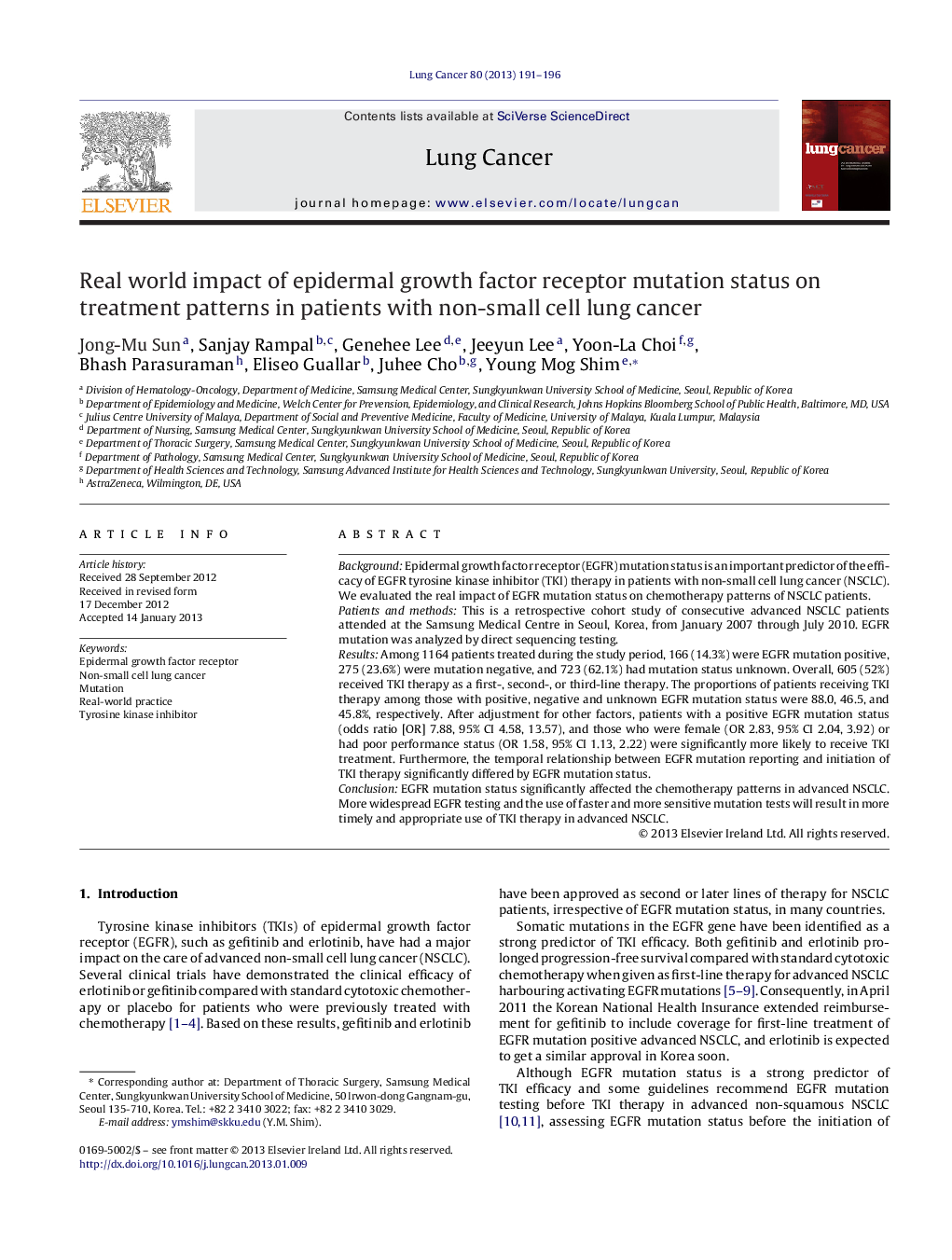| Article ID | Journal | Published Year | Pages | File Type |
|---|---|---|---|---|
| 2141316 | Lung Cancer | 2013 | 6 Pages |
BackgroundEpidermal growth factor receptor (EGFR) mutation status is an important predictor of the efficacy of EGFR tyrosine kinase inhibitor (TKI) therapy in patients with non-small cell lung cancer (NSCLC). We evaluated the real impact of EGFR mutation status on chemotherapy patterns of NSCLC patients.Patients and methodsThis is a retrospective cohort study of consecutive advanced NSCLC patients attended at the Samsung Medical Centre in Seoul, Korea, from January 2007 through July 2010. EGFR mutation was analyzed by direct sequencing testing.ResultsAmong 1164 patients treated during the study period, 166 (14.3%) were EGFR mutation positive, 275 (23.6%) were mutation negative, and 723 (62.1%) had mutation status unknown. Overall, 605 (52%) received TKI therapy as a first-, second-, or third-line therapy. The proportions of patients receiving TKI therapy among those with positive, negative and unknown EGFR mutation status were 88.0, 46.5, and 45.8%, respectively. After adjustment for other factors, patients with a positive EGFR mutation status (odds ratio [OR] 7.88, 95% CI 4.58, 13.57), and those who were female (OR 2.83, 95% CI 2.04, 3.92) or had poor performance status (OR 1.58, 95% CI 1.13, 2.22) were significantly more likely to receive TKI treatment. Furthermore, the temporal relationship between EGFR mutation reporting and initiation of TKI therapy significantly differed by EGFR mutation status.ConclusionEGFR mutation status significantly affected the chemotherapy patterns in advanced NSCLC. More widespread EGFR testing and the use of faster and more sensitive mutation tests will result in more timely and appropriate use of TKI therapy in advanced NSCLC.
